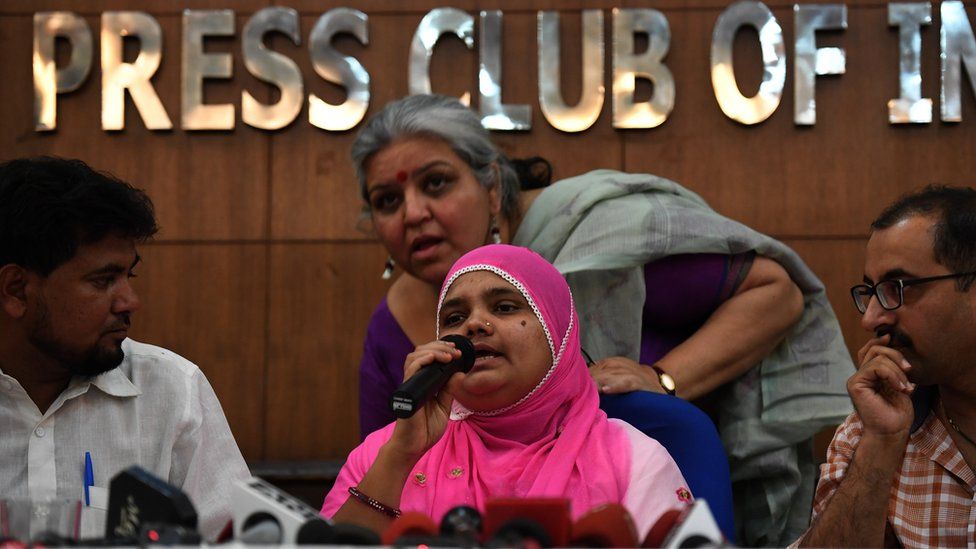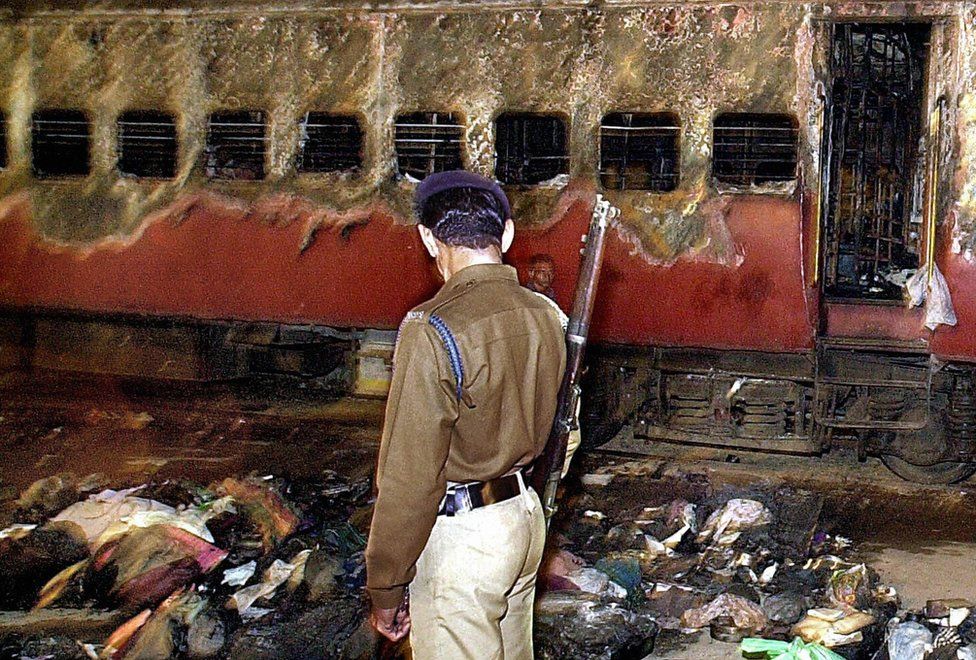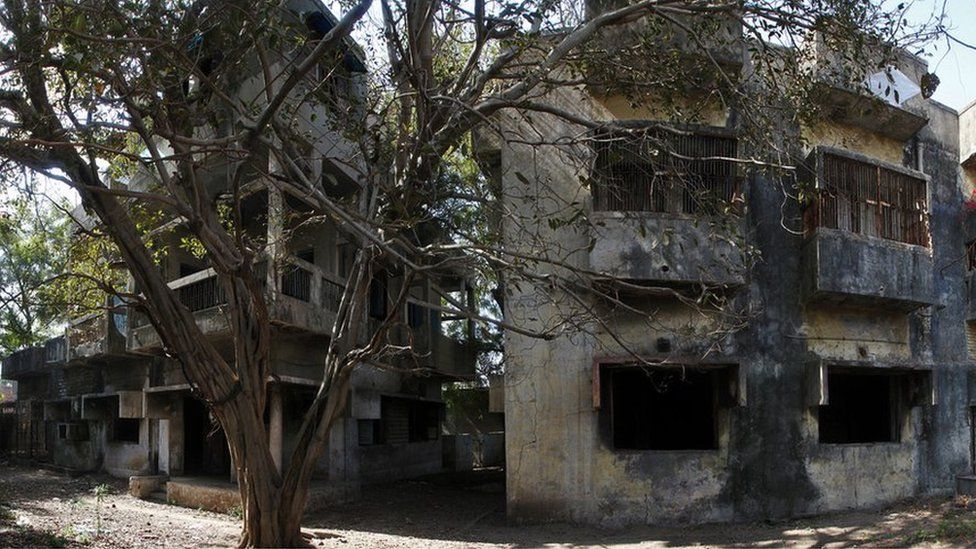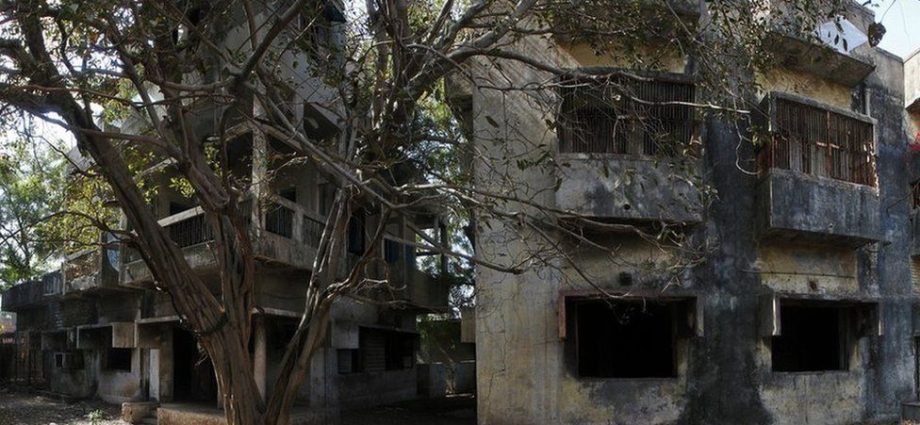
India’s top court has cancelled a 2022 Gujarat government order allowing the premature release of 11 men who were convicted for the gangrape of a pregnant Muslim woman, Bilkis Bano.
The men will have to return to prison in a fortnight, a judge said.
The convicts, who had also murdered 14 members of Bano’s family, were serving life sentences.
They were part of a Hindu mob that attacked Bano and her family during the 2002 anti-Muslim riots in Gujarat.
Their release in August 2022 had caused global outrage.
Many were especially aghast as the convicts, who were serving life sentences for rape and murder, were accorded a heroes’ welcome as they stepped outside the Godhra jail, with relatives giving them sweets and touching their feet to show respect.
Critics had also questioned the timing of the release as the men had walked free on 15 August – the day India was celebrating its independence day and just hours after Prime Minister Narendra Modi had given a speech asking citizens to respect women.
The Supreme Court heard several petitions, including one from Bano, challenging the convicts’ release. In her petition, Bano had said that the premature release of the convicts “has shaken the conscience of the society”. Calling it one of the most gruesome crimes this country has ever seen”, she said the release had left her “shell-shocked and completely numb”.
Reading from the judgement on Monday, the two-judge Supreme Court bench, headed by Justice BV Nagarathna, said the state of Gujarat was “not competent” to pass the remission orders in the case since the men were tried and convicted in a court in the state of Maharashtra.
“The government of the state where the offender is sentenced is the appropriate government to grant remission, not the government of the state where the offence took place,” the order said.
Gujarat state officials had said in the court that a government panel had approved the application for remission as the men – first convicted by a trial court in 2008 – had spent more than 14 years in jail, and after considering other factors such as their age and good behaviour in prison. The state government said they had sought the federal government’s approval – which was granted by the home ministry, led by Amit Shah.
The approval had come despite opposition from a court and federal prosecutors who had said they should not be “released prematurely and no leniency may be shown” to them as their crime was “heinous, grave and serious”.
Days after her attackers were freed, Bano issued a statement calling the decision to free the men “unjust” and said it had “shaken” her faith in justice.
“When I heard that the convicts who had devastated my family and life had walked free, I was bereft of words. I am still numb,” she said.

“How can justice for any woman end like this? I trusted the highest courts in our land. I trusted the system, and I was learning slowly to live with my trauma. The release of these convicts has taken from me my peace and shaken my faith in justice,” she wrote, appealing to the Gujarat government to “undo this harm” and “give me back my right to live without fear and in peace”.
Bano’s fight for justice was long and nightmarish. It has been well documented that some police and state officials tried to intimidate her, evidence was destroyed and the dead were buried without post-mortems. The doctors who examined her said she hadn’t been raped, and she received death threats.
The first arrests in the case were made only in 2004 after India’s Supreme Court handed over the case to federal investigators. The top court also agreed that courts in Gujarat could not deliver justice to her and transferred her case to Mumbai.
Her fight for justice was also disruptive for her family – they had to move home nearly a dozen times.
“We still can’t go home because we’re afraid. Police and the state administration have always helped our attackers. When we are in Gujarat, we still cover our faces, we never give out our address,” her husband had earlier told me.
-
-
2 June 2016

-
-
-
22 February 2011

-

